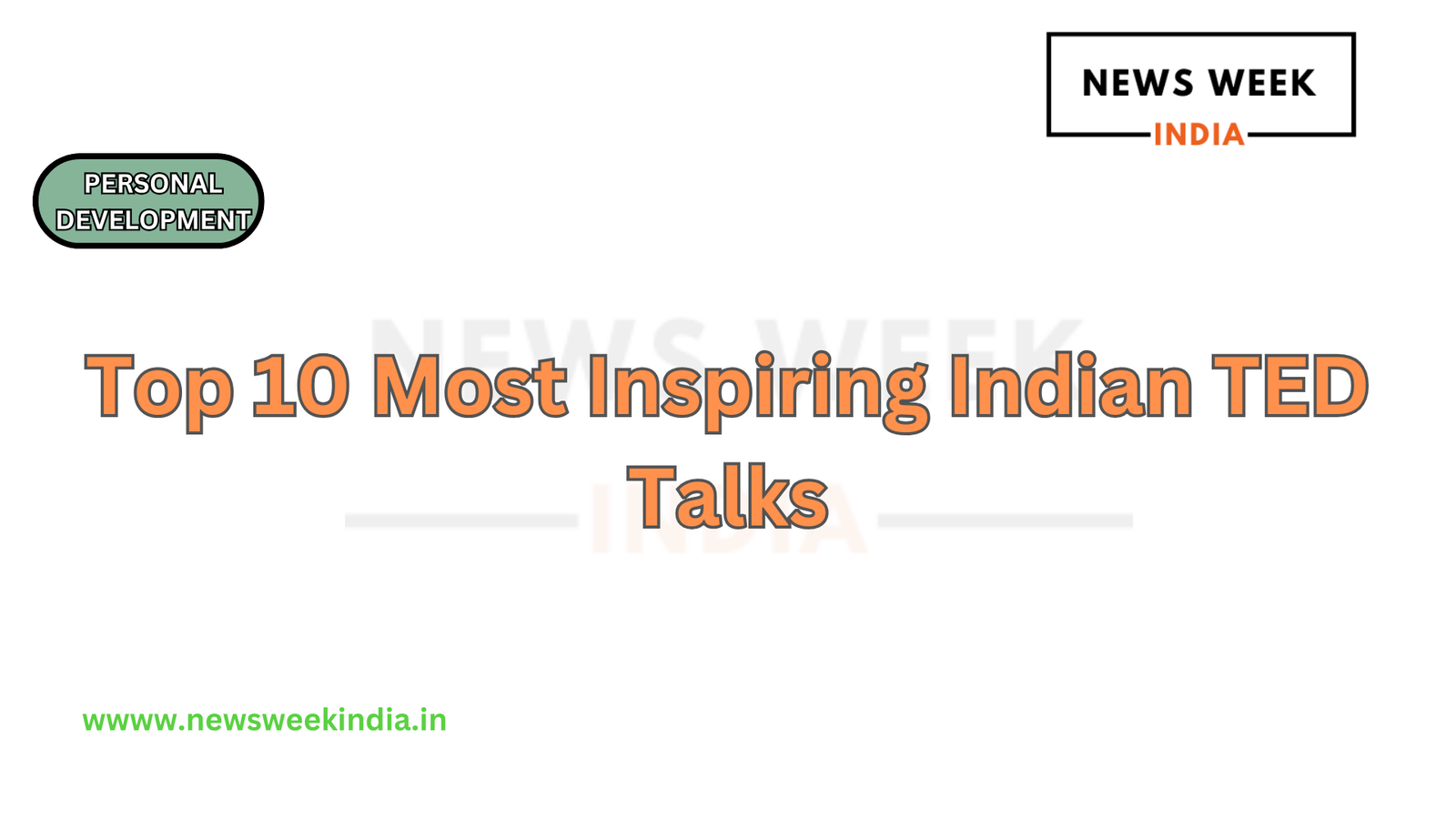
TED Talks have become a global platform for thought leaders, innovators, and changemakers to share ideas that inspire, educate, and challenge the status quo. India, with its rich tapestry of stories and diverse voices, has contributed some truly compelling talks that resonate on a global scale. Here, we highlight the top 10 most inspiring Indian TED Talks that have captivated audiences and continue to spark meaningful conversations.
Top 10 Most Inspiring Indian TED Talks
1. Shah Rukh Khan: Thoughts on Humanity, Fame, and Love
Bollywood superstar Shah Rukh Khan’s TED Talk is not just about his journey as an actor but also about embracing humanity, dealing with the ups and downs of fame, and the importance of love in a fast-changing world. His blend of wit, humility, and insight offers a refreshing perspective on life in the spotlight.
Key Takeaway: Khan emphasizes the importance of staying true to oneself and maintaining a sense of humor amidst life’s complexities.
2. Kiran Bedi: A Life of Courage and Innovation
Kiran Bedi, India’s first female police officer, shares her journey of breaking barriers and her relentless pursuit of justice and reform in India’s police system. Her talk delves into her pioneering initiatives, like prison reform, and highlights the power of integrity and innovation in leadership.
Key Takeaway: Bedi’s talk is a testament to how courageous leadership can drive meaningful change even in the most rigid systems.
3. Devdutt Pattanaik: East vs. West — The Myths That Mystify
Mythologist Devdutt Pattanaik explores the cultural differences between Eastern and Western philosophies through the lens of mythology. His talk brilliantly contrasts how these narratives shape our worldview and behavior, offering a unique understanding of cultural diversity.
Key Takeaway: Understanding and respecting different cultural narratives can bridge gaps and foster greater global empathy.
4. Arunachalam Muruganantham: How I Started a Sanitary Napkin Revolution!
Arunachalam Muruganantham’s talk is a powerful narrative of how one man’s curiosity and determination transformed menstrual hygiene for millions of women in rural India. By inventing a low-cost sanitary napkin machine, he not only addressed a taboo topic but also empowered women through employment.
Key Takeaway: Innovation driven by empathy can solve pressing social issues and bring about revolutionary change.
5. Sridhar Vembu: Empowering Rural India Through Technology
Sridhar Vembu, the founder of Zoho, presents an inspiring vision of how technology and entrepreneurship can revitalize rural India. His talk highlights the importance of decentralization, creating job opportunities in rural areas, and leveraging local talent to build a sustainable and inclusive economy.
Key Takeaway: Technology can be a powerful tool for economic empowerment and bridging the urban-rural divide.
6. Bunker Roy: Learning from a Barefoot Movement
Bunker Roy’s TED Talk tells the story of the Barefoot College, an institution in India that empowers rural communities by training local women and men, many of whom are illiterate, to become solar engineers, artisans, and doctors. His focus on grassroots education challenges traditional notions of what it means to be ‘educated.’
Key Takeaway: True education empowers individuals to uplift their communities and create sustainable futures.
7. Shashi Tharoor: Why Nations Should Pursue Soft Power
Shashi Tharoor, a renowned author and politician, makes a compelling case for the use of soft power — the ability to attract and co-opt rather than coerce. Tharoor argues that India’s rich culture, heritage, and democratic values are potent tools in its global diplomatic arsenal.
Key Takeaway: Soft power is an underutilized yet powerful tool for enhancing a nation’s influence and fostering international cooperation.
8. Anupam Mishra: The Ancient Ingenuity of Water Harvesting
Anupam Mishra’s talk on traditional water harvesting methods in India reveals the timeless wisdom embedded in ancient practices. Mishra emphasizes the importance of reviving these eco-friendly techniques in the face of modern water crises.
Key Takeaway: Sustainable solutions often lie in our past, waiting to be rediscovered and adapted for current challenges.
9. Smriti Morarka: The Power of Weaving Culture into Contemporary Life
Smriti Morarka explores how the traditional art of weaving can be a powerful vehicle for cultural preservation and contemporary relevance. Her talk is a call to recognize and value the craftsmanship that defines India’s cultural heritage, urging society to integrate these practices into modern lifestyles.
Key Takeaway: Cultural heritage is not just about the past; it can inspire and shape contemporary identity and innovation.
10. Manoj Bhargava: Billions in Change
Philanthropist Manoj Bhargava discusses his initiatives under the ‘Billions in Change’ movement, focusing on practical solutions to the world’s most pressing problems — water, energy, and health. Bhargava’s emphasis on accessible, low-cost solutions that can make a real difference for those in need resonates deeply with his audience.
Key Takeaway: True impact comes from addressing basic human needs with innovative and scalable solutions.
Last Updated on: Friday, September 27, 2024 1:32 pm by Admin | Published by: News Week India Team on Friday, September 13, 2024 12:23 pm | News Categories: Business

Leave a Reply